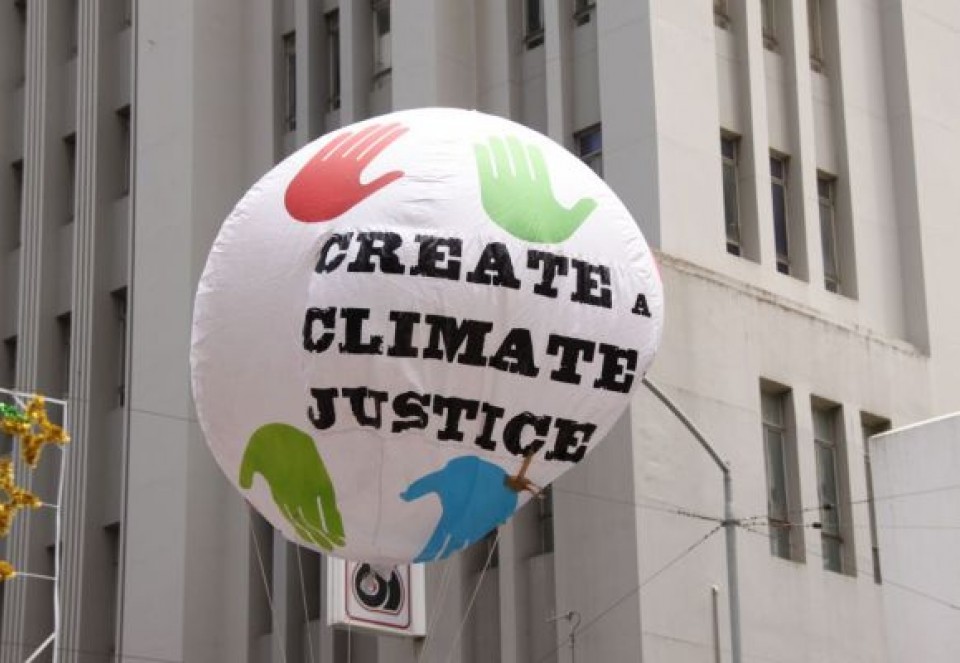In Paris in December, at the UNFCCC COP21 conference, a new universal climate agreement will be agreed. Science shows that developing countries face enormous challenges tackling the consequences of climate change. New, climate-smart energy systems and infrastructure must be constructed, while entire food systems and population patterns must adapt to changing conditions.
Developing countries have been promised new and additional funding from OECD member countries to face these challenges, but there is wide-spread disappointment with what is perceived as a lack of commitment, denial of responsibility, and unsatisfactory delivery from donor countries. In the current UN Financing for Development negotiations (FfD), which are to pave way for a climate agreement in Paris, the current draft does not even mention climate finance additional to ODA, or the principle of Common But Differentiated Responsibilities (CBDR). Private sector investments have also been presented as an important contributor to climate finance, but levels are still very low. Also there is no clarity on how public funds should be used to leverage private, sustainable investments, or what should be counted as climate finance and ODA, and where to draw the line between them.
For more information and registration, see event page
Deep concern
There is deep concern that if FfD and Paris do not deliver on climate finance, many G77-countries will not sign on to the new agreement. FfD was seen by many as an instrument both for mobilizing new levels of climate finance, as well as for outlining the rules and ways to measure contributions, but currently there is a high level of disagreement on this in the negotiations. The seminar will focus on these issues, as well as on the question of how to operationalize the principle of CBDR in finance.
The negotiations on Finance for (Sustainable) Development are due to be finalized at the summit in Addis Abeba in July this year. The result will determine the resources available to the Sustainable Development Goals, which are to be adopted in September.This complicated process adresses many challenges related to sustainable development in developing as well as developed countries - health, education, food security, amongst others. Nevertheless, it is ForUMs strong belief that tackling the causes and impacts of climate change will be a pre-requisite to ending poverty in a large number of vulnerable developing countries and to promote a global sustainable development. It is therefore important that FFD explores and incorporates the numerous ways in which it can address climate change as a complementary process to the work of the United Nations Framework on Climate Change (UNFCCC) and the Sustainable Development Goals (SDGs).
The Addis Ababa Accord will be an important test of the willingness of donor countries to make significant contributions to a predictable and ambitious regime of sustainable development funding. The FFD process should help to deliver a positive contribution to the UN climate summit COP 21 taking place in December in Paris. The 21st Conference of Parties (COP21) – will be a defining moment for reaching an international agreement on climate action, and the issue of Means of Implementation is considered a crucial issue.
Key demands
The broad-based civil society network CAN International has formulated the following key demands to the FFD process:
- Sustainable development financing is climate proofed through reducing the climate change effects of development financing and improving the resilience of communities and investments to a changing climate. This includes climate risk assessments of all sustainable development financing and public and private policies and activities that achieve outcomes with positive impacts on global climate objectives; for example, phasing out fossil fuel subsidies and shifting support to low-carbon and renewable energy sources, and financing adaptive and climate resilient infrastructure.
- That private finance is subject to robust transparency and accountability measures
- That climate finance commitments made through the UNFCCC are fulfilled. This might guarantee that funding requirement for climate adaptation and mitigation efforts are met. Climate finance should be additional to development assistance, and both strands of finance must continue to increase.
